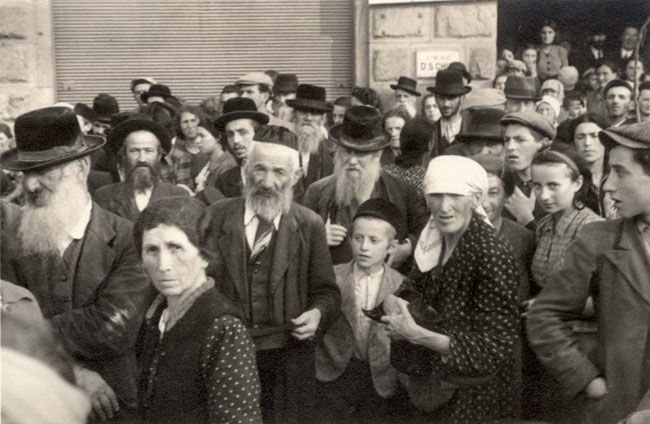Thousands of Austrians Taken Prisoner; Starvation in Fort;
Russian Officer: ‘Most Horrible Sight I’ve Ever Seen.’
Special to The Great War Project
(21-23 March) While the British focus most of their attention on northwestern Turkey – the Dardanelle Straits and the Gallipoli Peninsula — the war between Austria-Hungary and Russia on the Eastern Front continues to produce an enormous number of casualties and terrible suffering.
Until March 22nd a century ago on the Eastern Front, thousands of soldiers of Austria-Hungary occupy the ancient fortress at Przemysl (pronounced SHEH-mih-shuhl) in Galicia (now southern Poland).
But on this day “amid ferocious blizzards,” reports historian Martin Gilbert, “hundreds of wounded men had frozen to death in the fields before they could be treated.”
The Austrians surrender the fortress. As related by historian Geoffrey Wawro, a British witness to the surrender writes, the garrison looked “half-starved…a more hopeless, dejected crowd I have never seen.”
The Austrian troops are faint with hunger. During the long Russian siege of the fortress, the soldiers eat all the stocks of food…
“Then they eat the horses, then every dog and cat in the city,”
One Russian officer who enters the fortress after the surrender writes, it is ‘the most horrible sight I’ve ever seen in war…The Hungarian soldiers, crazed for want of food, their hands and faces smeared with blood as they devoured the raw and dripping bits of [horse] flesh, gouged with their knives and fingers from the dead bodies of newly killed horses.”
It is a Russia victory with disastrous consequences for the Austrians. More than 120,000 Austrian troops are taken prisoner. The Russians seize 700 heavy guns.
The surrender also frees an additional Russian force to attack Austria-Hungary in its heartland across the Carpathian Mountains. “There were fears even for Budapest,” reports historian Norman Stone.
If it is a defeat for Austria, it is also a blow for Germany, observes Gilbert. “Everywhere the Russians are attacking ruthlessly,” writes the German naval chief, Admiral Alfred von Tirpitz, “The Austrians are always beaten, and we too are getting nervous.”
At Austrian headquarters, reports Gilbert, “the morale of their front-line was described as ‘below zero.’”
Writes historian Stone…
“The life-blood of the Habsburg Empire was draining away.”
Desertion is becoming a problem, especially among the Slav troops of the Empire, the Ukrainians and Czechs.
Still the Germans are pressing the Russian army hard in the northern sector of the Eastern Front, especially in the territory of Lithuania, the home of many Jews. Reports Gilbert, “The Jews were again accused of being secretly supportive of Germany, and waiting to welcome in the German troops. Once again there was widespread looting of Jewish homes and shops.
“Russian Cossacks, the traditional enemies of the Jews since the seventeenth century, forced them out of their homes and drove them through the snow. As many as half a million Jews were forced to leave Lithuania and Kurland [today’s Latvia], yet more refugees in search of a safe corner, their livelihood and their security destroyed.”
Austria’s refugee problem is acute. Writes historian Alexander Watson, “The arrival in the interior of hundreds of thousands of desperate Poles, Ukrainians, and above all Jews provoked racial conflict and anti-Semitism.”
Still the outcome of the battle on the Eastern Front is not yet determined. The war is becoming “a new, very different type of conflict,” writes Watson, “a struggle of endurance,” a conflict the Germans and especially the Austrians “were ill-equipped to win.”


